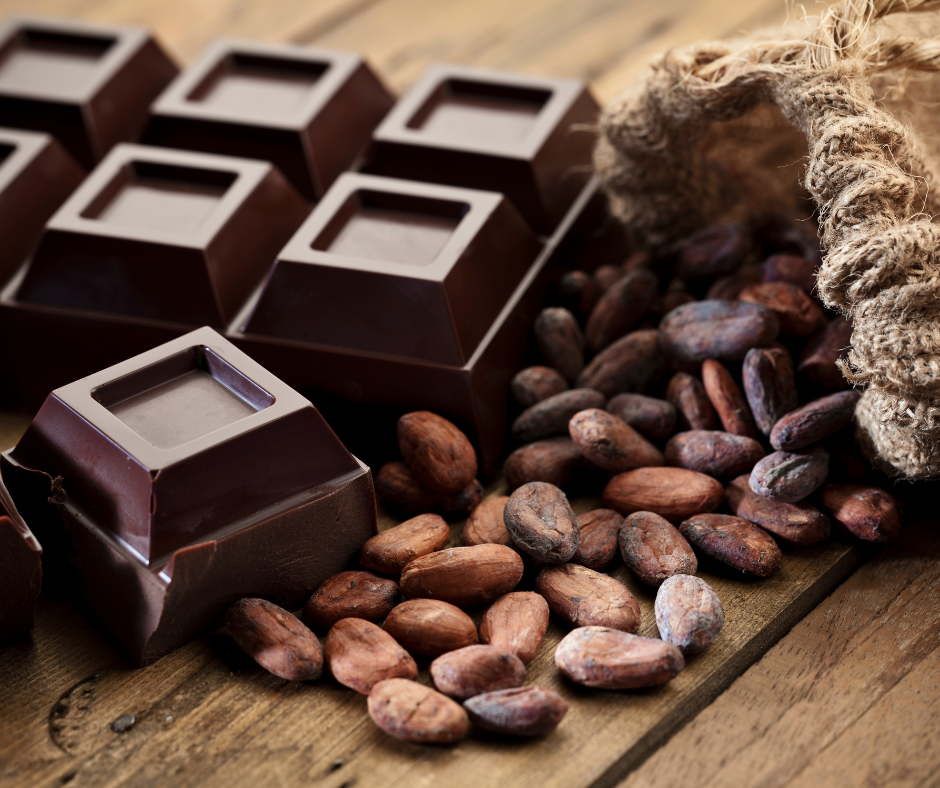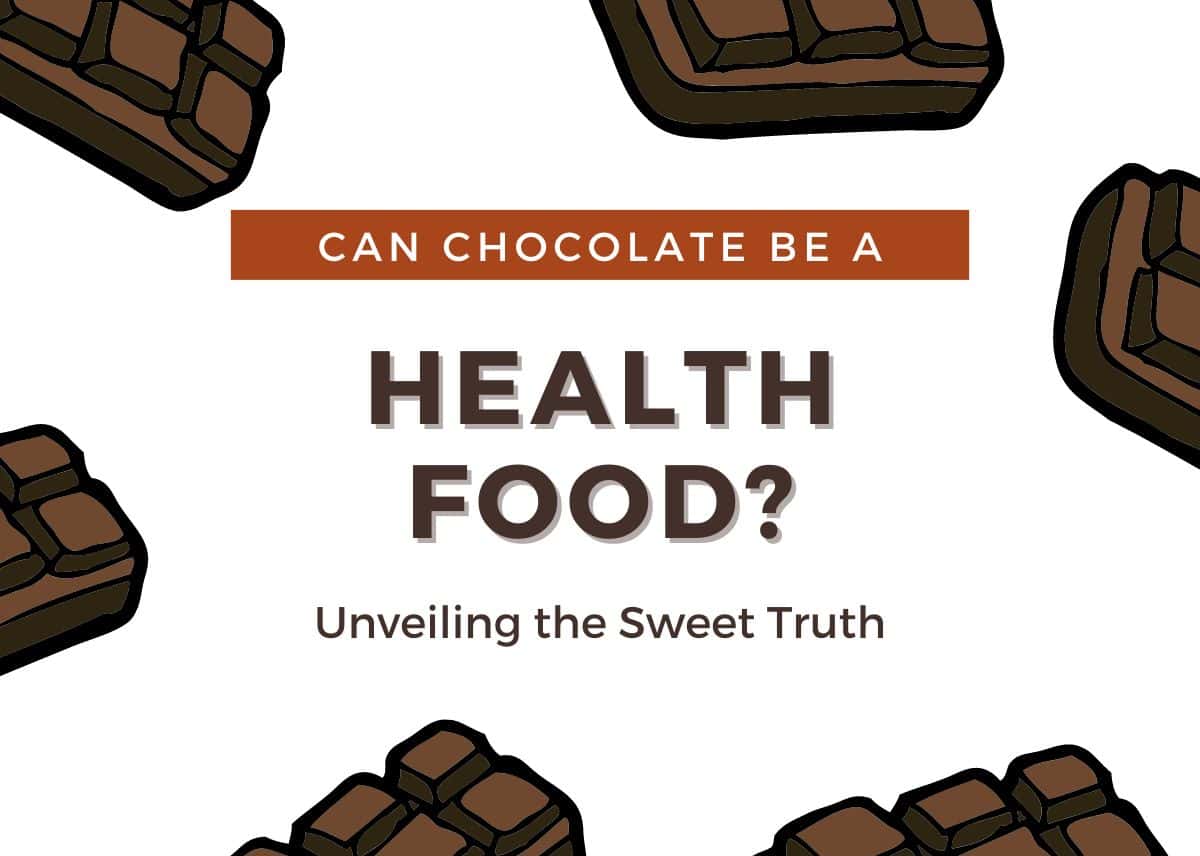Does Chocolate Have Caffeine? Unveiling the Sweet Truth!
Yes, chocolate contains caffeine, but the amount varies by type. Milk chocolate has less caffeine than dark chocolate.
Chocolate is a beloved treat worldwide, enjoyed for its rich flavor and comforting qualities. It’s well known for containing a variety of compounds, including caffeine, which can influence energy levels and alertness. The caffeine content in chocolate is an important consideration for those sensitive to this stimulant or monitoring their intake.
Dark chocolate typically has more caffeine, with an average of 12 milligrams per ounce, compared to milk chocolate’s 9 milligrams per 1. 5 ounces. White chocolate contains only trace amounts of caffeine, as it lacks the cocoa solids where caffeine is found. For chocolate lovers wondering about its caffeine content, it’s reassuring to know that while present, it’s generally in smaller amounts compared to a standard cup of coffee.

Credit: crosslakecoffee.com
The Caffeine Content In Chocolate
Chocolate contains caffeine, but the amount varies. Dark chocolate has the highest caffeine content. This is due to its higher cocoa solid percentage. On the other hand, milk chocolate has less caffeine. It’s because milk chocolate mixes milk powder with cocoa. White chocolate usually has the least caffeine.
It’s all about the cocoa solids. Caffeine levels increase with more cocoa solids. Seeing the difference clearly, here’s a table:
| Type of Chocolate | Cocoa Solids | Caffeine Content |
|---|---|---|
| Dark Chocolate | High | Most Caffeine |
| Milk Chocolate | Medium | Less Caffeine |
| White Chocolate | None | Least Caffeine |

Credit: www.plattershare.com
How Chocolate Affects Your Energy Levels
Chocolate often boosts energy levels due to caffeine and sugar. The content of caffeine in chocolate varies. Dark chocolate contains more caffeine than milk chocolate. The amount is much less than you find in coffee. A typical chocolate bar has about 10-35 milligrams of caffeine. Contrast this with coffee, where a single cup may contain 95-200 milligrams. This makes chocolate a milder option for those seeking a gentle lift.
Additionally, the sugar in chocolate delivers quick energy. But this can lead to a fast drop in energy later on. Varying by the chocolate type and cocoa content, the energy effect differs. Always check the label for caffeine and sugar information. For minimal effect, choose chocolate with higher cocoa and lower sugar.
Health Implications Of Chocolate Consumption
Chocolate contains caffeine, though not as much as coffee. Eating chocolate gives energy. This is because of its caffeine. Dark chocolate has more caffeine than milk chocolate. White chocolate has the least. Still, it has less caffeine than a cup of coffee.
Chocolate, in moderation, can be good for your heart. It has substances that relax blood vessels. This can lower blood pressure. Chocolate also has antioxidants. These are good for your body. They fight damage from pollution and sunlight.
Eating too much chocolate is bad. It can cause weight gain and tooth decay. It can also cause bad sleep. Restful sleep is important for health. A big problem with too much chocolate is too much caffeine. Too much caffeine can make hearts beat fast. It can also make people feel nervous or jittery.
Decoding Chocolate Labels
The percentage of cacao hints at the caffein level in chocolate. Darker chocolates generally have more cacao. This means more caffeine too. A bar with 70% cacao will likely have around 70 milligrams of caffeine per 3.5 ounces. Comparing to milk chocolate, which has about 20 milligrams for the same size.
It’s also key to know what a ‘serving’ is. Don’t let labels trick you. A single serving might have less caffeine. But some bars have multiple servings in them. Always check the serving size on the package. It tells you how much caffeine you eat or drink.
Choosing The Right Chocolate For Your Caffeine Sensitivity
People with caffeine concerns often seek chocolate options with minimal caffeine. Dark chocolate generally contains more caffeine than milk or white chocolate. To keep caffeine intake low, select chocolates with higher milk content. For instance, a standard milk chocolate bar has about 9 milligrams of caffeine.
White chocolate is an excellent choice; it’s virtually free of caffeine. Remember that portion size matters; smaller amounts will reduce caffeine consumption. Be mindful of labels, as cocoa percentage correlates to caffeine content. Savoring chocolate slowly also helps manage intake.
Consider these tips when picking your treat. Enjoying chocolate without excess caffeine is possible. Read the ingredients and choose wisely to match your sensitivity level.
The Bittersweet Conclusion
Chocolate does contain caffeine, though the amount varies. Dark chocolate generally possesses more caffeine than milk or white chocolate. Embracing a healthy lifestyle means enjoying chocolate in moderation. Opting for quality chocolate with a higher percentage of cocoa can enhance the nutritional value. One should consider the caffeine content if sensitive or consuming it late in the day. Reading labels for the caffeine amount is wise. This helps maintain balance and well-being while indulging in this tempting treat.

Credit: medriva.com
Frequently Asked Questions On Does Chocolate Have Caffeine
Does Dark Chocolate Contain Caffeine?
Yes, dark chocolate contains caffeine. The amount varies depending on the cocoa concentration, but typically, it can range from 12 mg to 23 mg per ounce.
How Does Caffeine In Milk Chocolate Compare?
Milk chocolate has less caffeine than dark chocolate. On average, you can expect about 5 mg of caffeine per ounce in milk chocolate.
Is It Safe To Eat Chocolate Before Sleep?
Consuming chocolate before sleep might disrupt sleep quality due to its caffeine content. It’s best to avoid chocolate, especially dark varieties, right before bedtime.
Can White Chocolate Keep You Awake?
White chocolate contains negligible amounts of caffeine. It’s unlikely to keep you awake, making it a safer choice for late-night indulgence compared to dark or milk chocolate.
Conclusion
To wrap things up, chocolate does indeed contain caffeine, albeit in small amounts. For those monitoring caffeine intake, it’s important to consider the type of chocolate you’re indulging in. Darker varieties typically have more caffeine. Enjoy your chocolate treats, but remember moderation is key to balance the pleasures of taste with health considerations.



